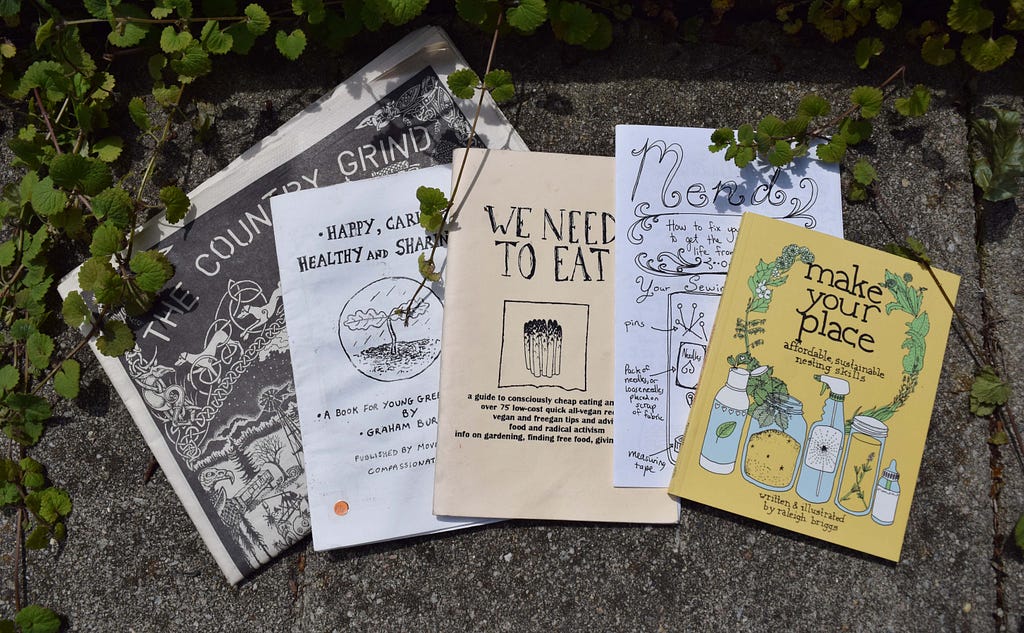
By design, zines are eco-friendly. Instead of spending energy and resources to make and run the equipment used to read online publications, zines take energy and resources one time to create a product that can be enjoyed over and over, without further waste.
Some zines take this one step further by sharing tips on being green in other areas of life. Here are a few that highlight different areas of life.

Nontoxic Housecleaning
Raleigh Brigg’s Nontoxic Housecleaning gives an overview of everything people need to know about cleaning their homes, bodies and pets in a way that is gentle on the environment and themselves. The zine, which has been added as a chapter to her book Make Your Place, includes recipes for floor cleaners, dish soaps, laundry detergents, shampoos and cleansers that all use non-toxic ingredients. In the body section, it even includes a list of herbs that can be added to the body products and what kind of skin and hair they’re good for.

This is a great read for anyone who wants to get into DIY green cleaning, as the recipes are comprehensive and simple. Brigg’s includes reasons for why she chooses certain ingredients and has sidebars on safety. Most ingredients are inexpensive, easy to acquire and can be used in multiple recipes, making sustainable cleaning also affordable.
While it’s missing more advanced products, like hard soap, Nontoxic Housecleaning is a place to get started on a path to a greener life. At the very least, it’s inspiration for having a little more fun with the housework.
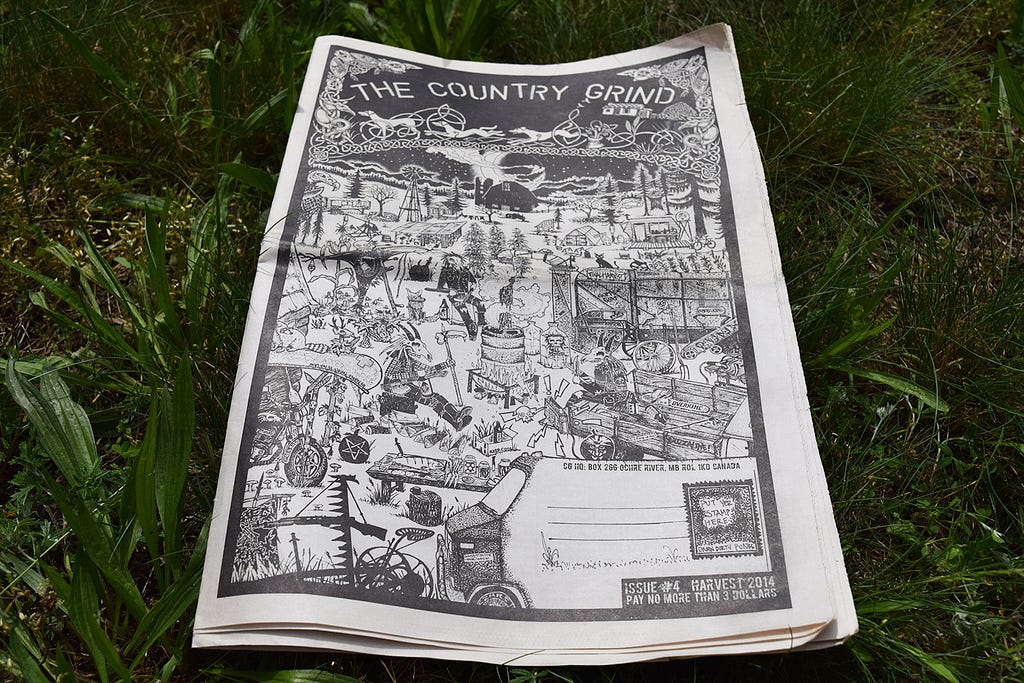
The Country Grind
Coming out of the rural Canadian prairies, this punk zine has contributors from all over who live the country life. To the urban-dweller, it gives a more complete picture of what it’s like to live somewhere more isolated, and to the country punk it creates a space for sharing tips, such as the importance of a solid roof for winter.

Many of the articles focus on the sustainability of a simpler life. A tutorial on harvesting tree bark for medicinal purposes stresses that anyone who tries it should ensure they are not killing the tree. A personal essay on using cloth diapers debates whether they actually are more environmentally friendly. Many of the people live without electricity and they discuss the challenges that come along with that.
The editors do use some problematic language, but overall the zine is an interesting read, no matter where you live, and a must-read for anyone who’s considering getting off the grid.
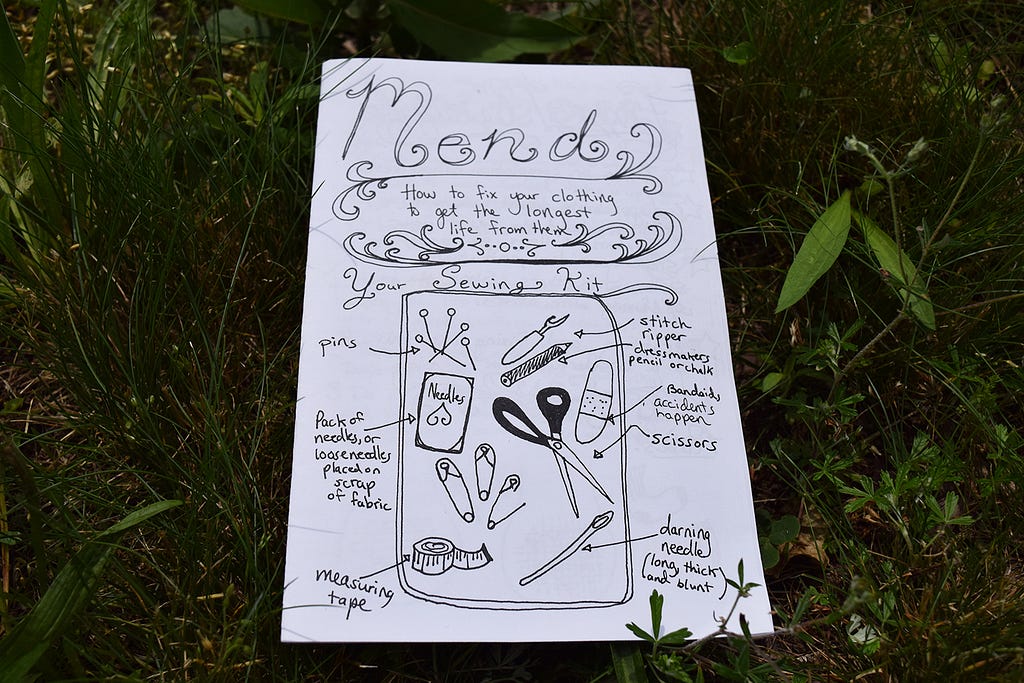
Mend
Clothing creates a lot of waste, but Anneliese Schoppe’s zine Mend has some simple fixes that can prevent well-loved fashion items from ending up in the landfill. She starts packing the small eight-page zine right from the cover, which has an illustrated list of what all menders should have in their sewing kit, including Bandaids because “accidents happen.”
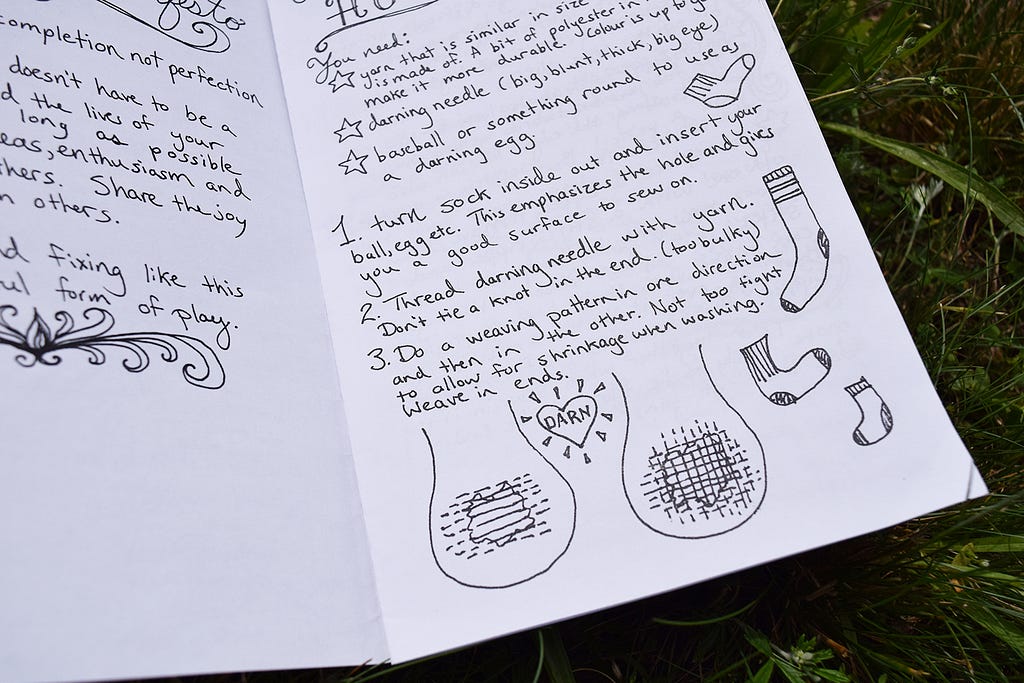
She takes readers through all the basics of mending. Readers learn how to troubleshoot zippers, sew patches on pants and fix ripped or bursting seams. There’s also an illustrated guide on darning socks. Each technique has tips that make this zine useful even to those who are lacking crafting skills. For those who aren’t big on sewing, Schoppe says a glue gun is an acceptable tool when it comes to hemming pants.
She focuses on mending as something that is sustainable, but also fun. “Crafting and fixing like this is a wonderful form of play.” Her playful font and illustrations make this zine both informative and fun.
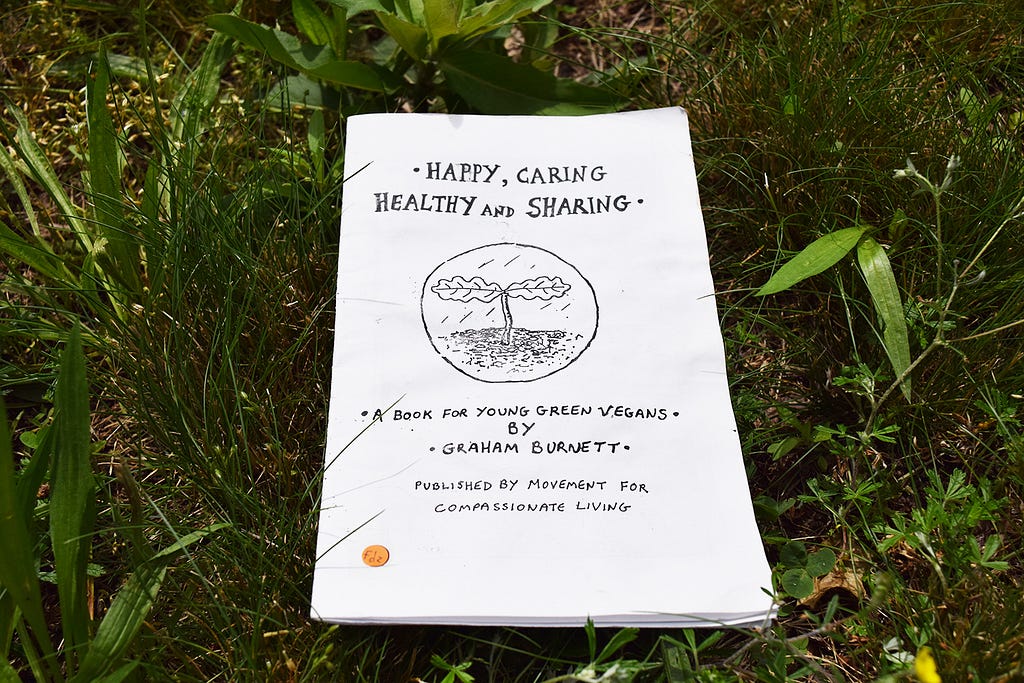
Happy, Caring, Healthy and Sharing
A book for young green vegans, this guide by Graham Burnett gives a gentle overview of the reasons why someone might want to switch to a plant-based diet. The focus going green when you go vegan is to live a life that is kind to animals and the planet alike, and he goes through many of the basic reasons why a vegan lifestyle accomplishes this.

However, he avoids the negative. Instead of dwelling on factory farms and the suffering of animals, he invites the reader to look over drawings of farmed animals and think about what products come from those animals, if we really need them and, if we do, what eco-friendly, vegan alternatives are available.
Throughout the zine, there are questions such as this to get the reader thinking. The questions are basic, as is in the info, making it suitable for a rather young vegan, but it’s also a cute read for older folks who are interested in the lifestyle.
The back of the zine includes a list of other publications that have more of the in-depth information, but Happy, Caring, Healthy and Sharing provides a sufficient overview of the vegan life for youngsters and newbies.
Reading through eco-zines can lead to discovering new ways to be green, ways that you never would have thought of on your own. Take a trip to your local zine-library or peruse Etsy to find new ways to lessen your ecological footprint.
The green zine roundup: A few must-read eco zines was originally published in Anomaly on Medium, where people are continuing the conversation by highlighting and responding to this story.
